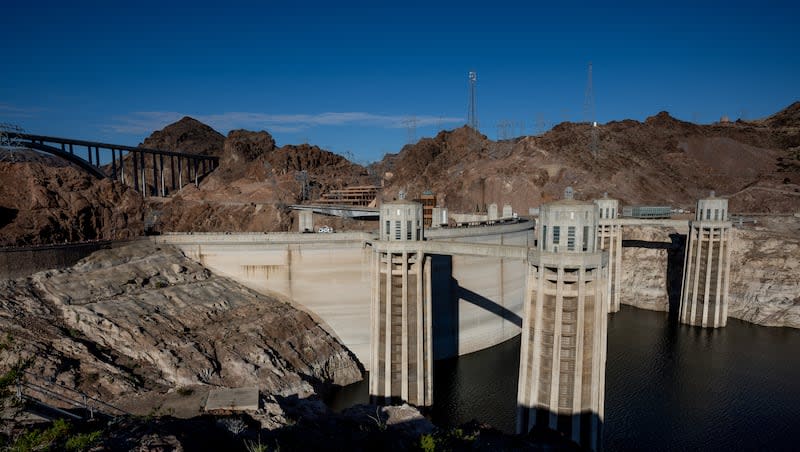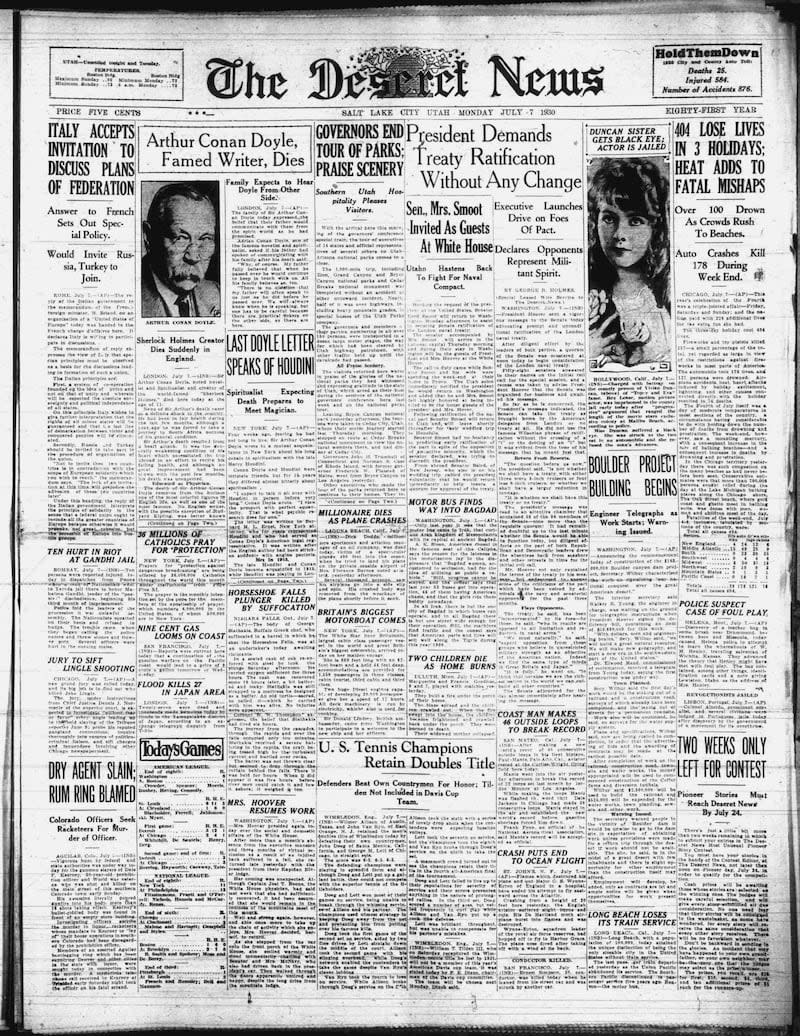Deseret News archives: Hoover Dam’s history on the Colorado still being written

A look back at local, national and world events through Deseret News archives.
On July 7, 1930, construction began on Boulder Dam. Today it is known as Hoover Dam.
The dam, which is responsible for the creation of Lake Mead, is the best known and largest of the dams on the Colorado River. Yet, it was not the first dam constructed on the river.
In fact, there were three dams constructed before construction ever started on Boulder Dam. The Grand Valley Diversion Dam, built for irrigation in Colorado, was constructed in 1916, while the Price-Stubb Dam was also built in Colorado and for irrigation in 1911.
However, the very first dam was the Laguna Diversion Dam, built along the Arizona and Colorado border. It was constructed in 1903, and finished in 1905.

Hoover Dam, on the Arizona-Nevada border, was finished in September 1935 to great fanfare. President Franklin D. Roosevelt was there for dedication. The name was changed to Hoover Dam before it even was complete.

According to Deseret News archived stories, it was once the tallest dam in the world.
“Hoover Dam is 726.4 feet high, 45 feet thick at the top, 600 feet thick at the bottom and 1,244 feet across the top. Lake Mead, which was created by the dam, is still the country’s largest man-made reservoir. When full, it is 110-115 miles long, with 550 miles of shoreline and a water capacity of about 32 million acre-feet — or enough to cover the state of Pennsylvania to a depth of one foot,” read one report.
Its supporters say that Las Vegas and Los Angeles downstream would never have grown without the dam’s creation. For better or worse, urban development, agriculture and recreation would not be the same.
Its hydroelectric power is vital to residents in the Southwestern U.S. Tourist visits to the dam continue.
Yet, the Colorado River is facing challenges brought on by growth and climate conditions. Dams on the Colorado have their detractors as well.
Here are stories and photo essays from colleagues from Deseret News archives:
“Hoover Dam: Engineering feat is still worthy of accolades”
“The Colorado River is the lifeblood of the West. How much longer will it last?”
“A portrait of the Colorado River”
“Will basin states’ plans save operations at Glen Canyon, Hoover dams?”
“Boulder City — a rock of faith”
“An engineering marvel is taking shape near Hoover Dam”
“Water works: Dams built the West. Some want them gone”
“The Latter-day Saint ghost town that keeps emerging from Lake Mead”

